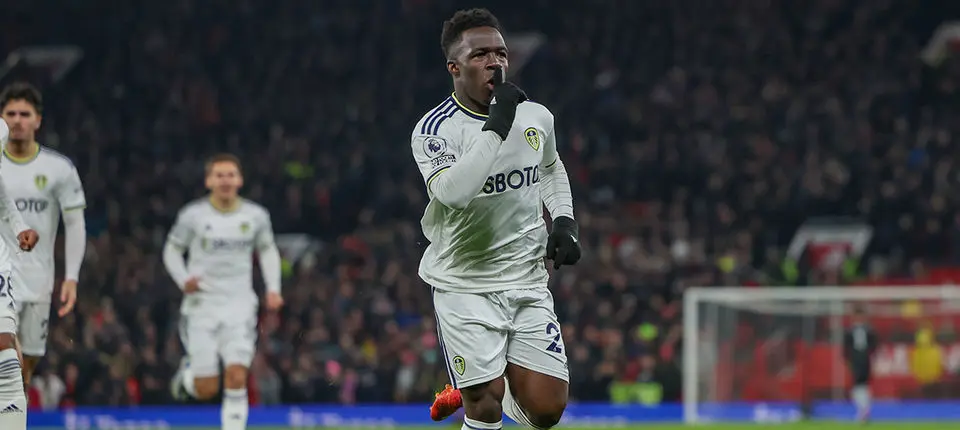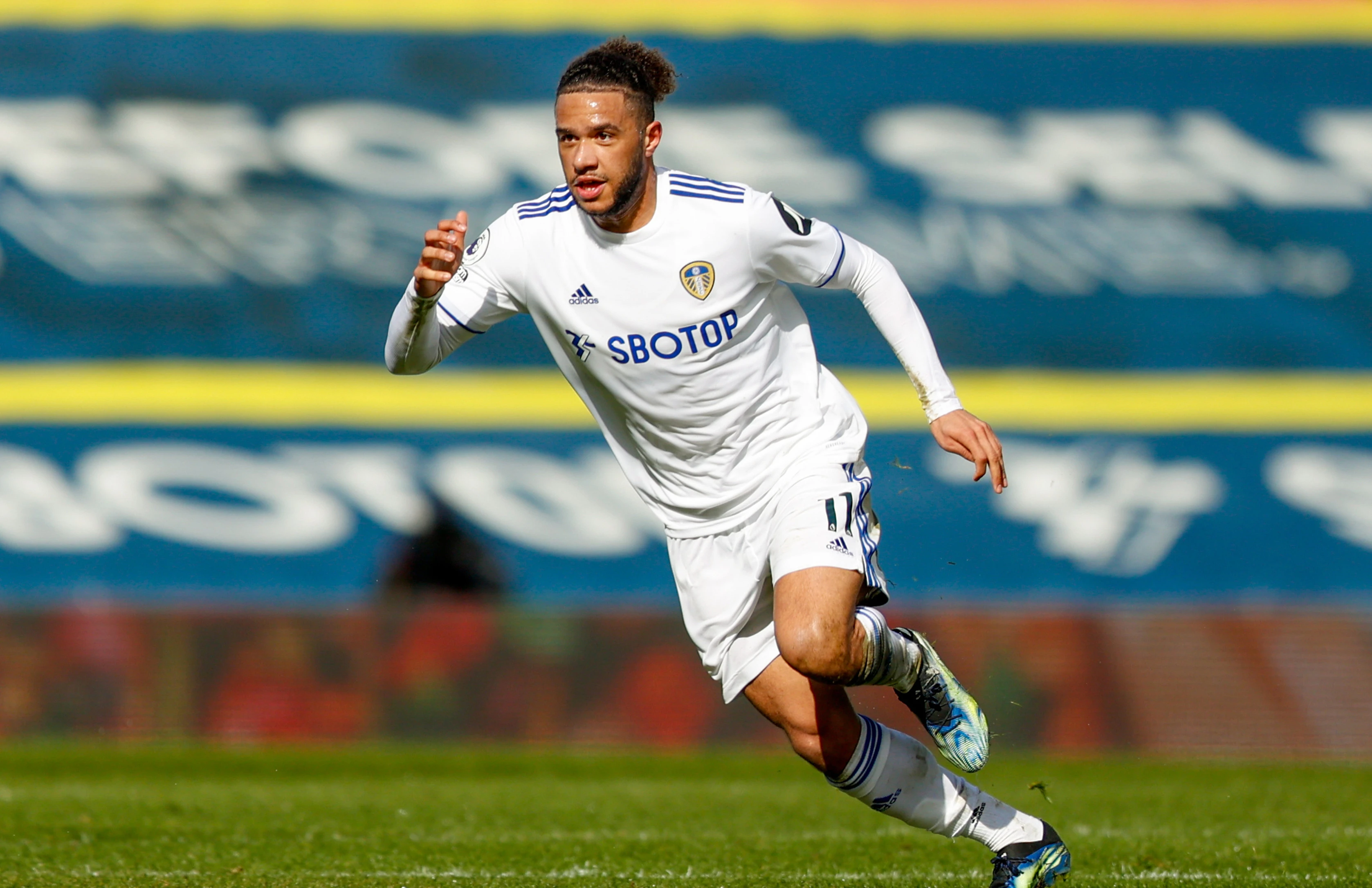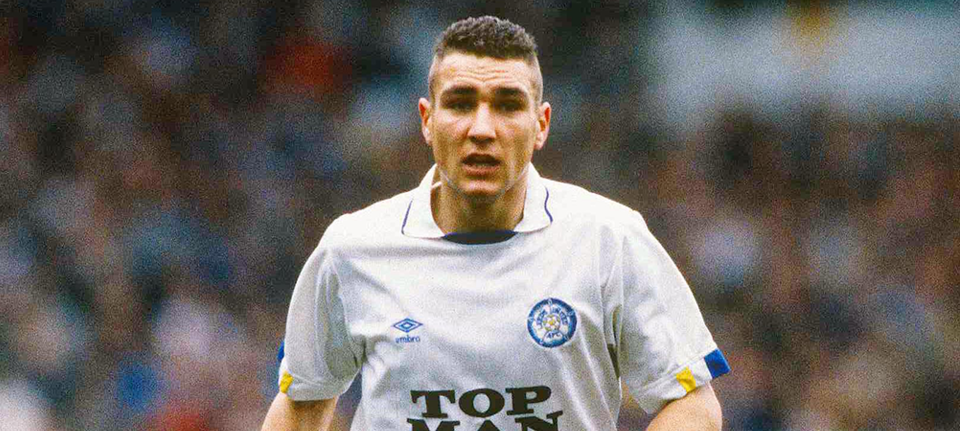In his latest column for leedsunited.com, lifelong supporter Jon Howe looks ahead to Saturday's clash with Everton.
Howe is the author of two books on the club, ‘The Only Place For Us: An A-Z History of Elland Road’ - which has been updated as a new version for 2021 - and ‘All White: Leeds United’s 100 Greatest Players’ in 2012.
If it’s true that a football crowd can win you a game, then it could be argued that Goodison Park hasn’t been doing its job this season. And the same accusation could be levelled at us at Elland Road too. And I’m sure we’d fight that charge with all the venom of one of those limb-crunching Tyler Adams or Weston McKennie tackles from the opening minutes of last Sunday’s game against Manchester United. The reality is that a crowd can only influence a game so much, and the extent of that influence is very much down to the individual players on both teams and how they wrestle control of a contest. Rarely will this have been more apparent than what we’ll see during Saturday’s fixture between Everton and Leeds United.
We’ve all been at games where it’s felt like the crowd is at the end of its tether. We’ve suffered the noxious torment of in-fighting and eroded patience countless times ourselves and we’ve watched gleefully on from an away end when the boot has been on the other foot. It’s not often we can say that both sets of fans in a stadium are equally despairing at their club’s current plight, but recent games have at least given Leeds fans some hope that this side can exert some control and turn the screw on a home crowd permanently hovering close to breaking point.
Almost exactly 12 months ago Leeds travelled to ‘Frank Lampard’s Everton’ and capitulated in a timid 3-0 defeat, which was effectively over as a contest within the first half an hour. It was the beginning of the end for Marcelo Bielsa and the point at which you knew something beautiful had turned into something sour. Fast forward a year and while Leeds only took a solitary point from the two games against Manchester United last week, we took a huge number of positives from the performances, and even if such encouragements are ultimately intangible they provide an element of faith and conviction that is essential going into Saturday’s quintessential ‘six-pointer’. Perhaps the most meaningful boost was the fact that we looked organised, compact and cohesive and, particularly at Elland Road on Sunday, controlled large parts of the game. And that has to be our number one aim at Goodison Park also.
In some respects it was a similar story at the City Ground versus Nottingham Forest, in that we kept the crowd largely quiet for the entire 90 minutes, despite trailing 1-0 for most of it, and dictated much of the game without making any significant inroads. At Old Trafford we took a two-goal lead before succumbing to the inevitable pressure, and at Elland Road last Sunday, we really should have been ahead before Marcus Rashford et al picked us off late on. We contained Manchester United for 80 minutes and frustrated them, their body language in a spikey, short-tempered contest told us that, and if we can do the same at Goodison this weekend the home crowd won’t be in a good place and the home team will most certainly know it.
After all, we know exactly what this is like; the eerie, awkward silences, the tutting and the impatience with every mis-placed pass, the inner demons taking over your soul, the arguing with the bloke sat behind you, the shouting at the ball-boy when they don’t retrieve the ball quick enough. A football crowd is made up of tens of thousands of individuals, all with their own personalities, attitudes and quirks; but inside the ground the crowd is one entity, with the same mentality and the same expectations and the same trigger points. Make things uncomfortable and they become snappy and paranoid and irate. That translates very quickly to the opposition players and this Leeds United team have found an ability to do that.
Our midfield pairing of Adams and McKennie are already dove-tailing neatly to act as a prowling couplet intent on blunt physicality and cunning disruption, while Max Wober is marshalling the defence with a calm head, and the rejuvenated Luke Ayling is wearing the captain’s armband with the imperious swagger we’ve come to love and have longed to see again. Our full backs look less exposed, in general we look less panicked, there appears to be more composure and understanding, it looks more like we have a pattern of play that can work. At the head of the team we have more threat from wide areas, guile and prompting in the middle, more coherent combinations and link-up play and, in the case of the 2-0 defeat to Manchester United last Sunday, there’s just the final finish missing; the most precious and yet maddeningly elusive commodity in football.
This was a classic Leeds United v Manchester United encounter; an Elland Road occasion completely lacking in compromise but spilling over with spite, blood and thunder. It was not easy on the eye for the large part, but Leeds matched-up physically, never allowed Manchester United’s quality players to have their own way and maintained an element of control, and perhaps that is what we need over the next few weeks; the ability to play the game on our own terms, and eventually, surely, our brilliant individuals will shine.
It’s perhaps an idealistic way of looking at things, and could be accused of being rarefied naivety or gullible romanticism, but winning a football match begins with taking control, and that’s something we haven’t done enough of this season. But we’ve shown in recent games that we have the capability to exercise an element of control and impose ourselves, and in fixtures like Everton away that is the quickest shortcut to silencing the crowd and turning the pressure dial up to eleven. That has to be our first objective on Saturday, although, if Willy Gnonto can drive one in from the edge of the box in the first minute, that will work just as well.
And if we are talking about ‘control’ then it’s worth noting that Michael Skubala and his backroom comrades have this for now and for forthcoming fixtures, and the players have a clear path of direction, at least for the next 90 minutes of action they face. Whatever we think about the managerial situation as individual fans, the most important thing right now is that the players go into each game with stable, clear and effective leadership and a lucid game-plan for playing the opposition in question. Skubala provides that for the time being, and from how the players have responded it appears the team are on board with it also. What the club does in the medium/longer term remains to be seen.
Alas, neither Skubala nor the players can do much about that, but they do need us in the meantime. In the tinderbox atmosphere of Goodison Park on Saturday, the players need us to forget about our troubles and to help exert some control; knowing how quickly the home fans’ bluster and buoyancy could crumble into dust. We’ve done it before in recent games, now we need to take control properly; turn the screw with a clinical incision, and see the job through.




